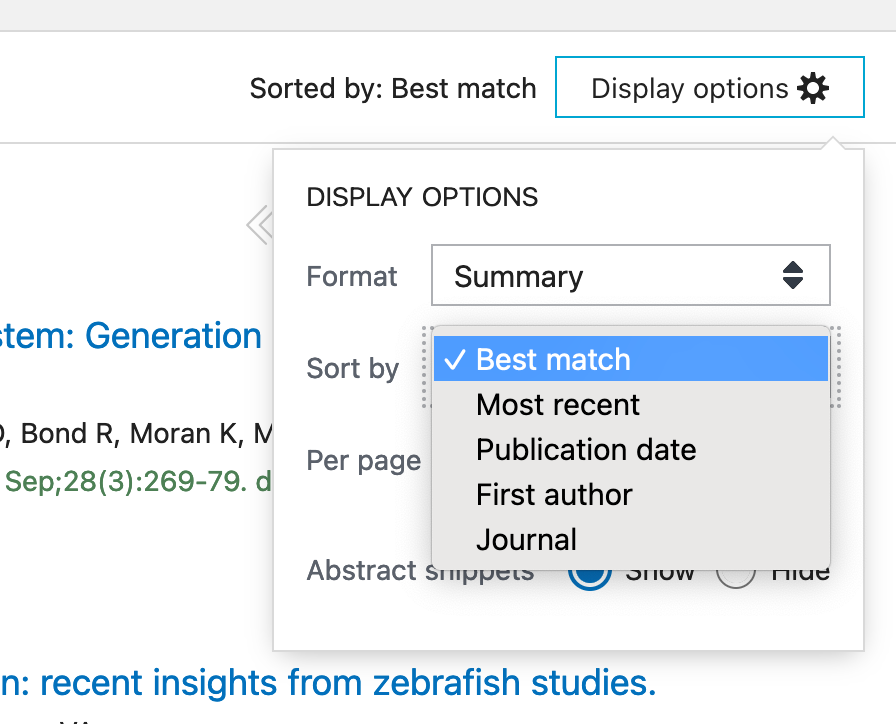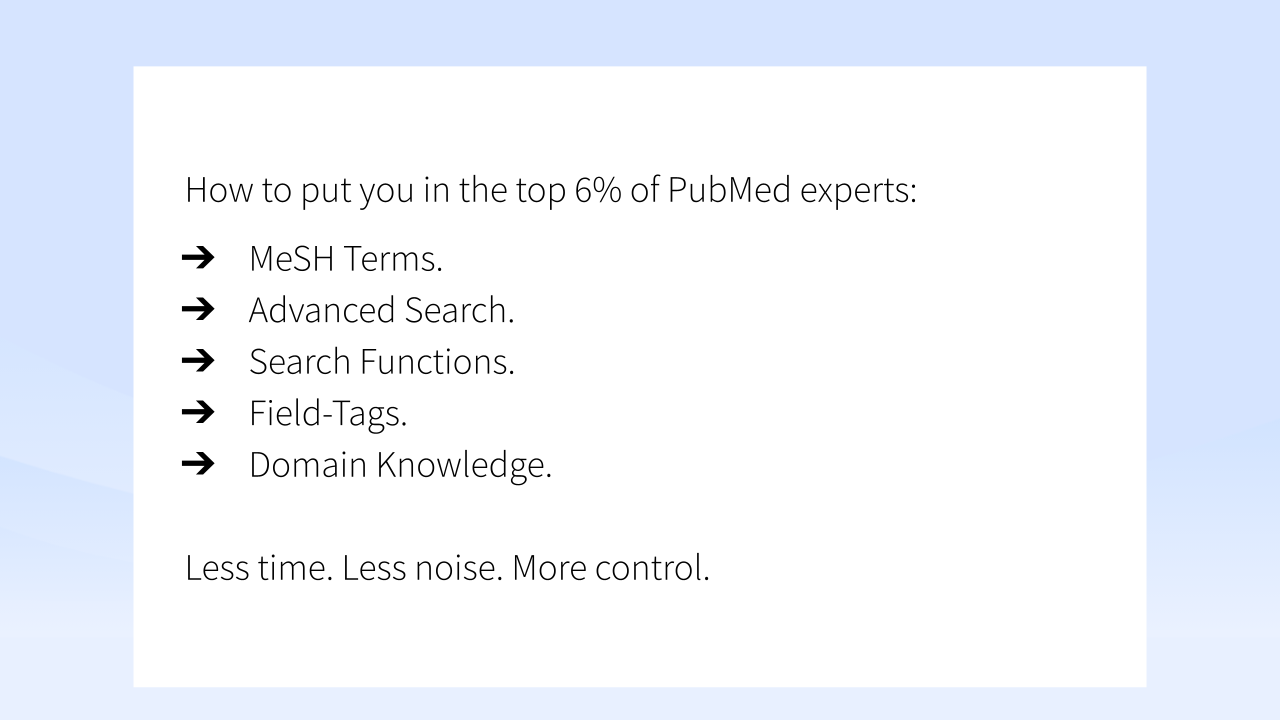🤯 How to put you in the top 6% of PubMed experts.
A study analyzed PubMed’s log data and identified differences between expert and non expert users. To become better at PubMed you should start using MeSH terms, Advanced Search, use the search functions, field-tags and domain knowledge. These alone would put you to the top 6%.

PubMed is the most popular medical search engine with 3 million queries per day. But who is the best at searching? By analyzing the searches on PubMed’s log file done for over 9 years, a study was able to address differences between expert and non expert users.
Experienced users have shorter sessions, find what they need in less searches, and amount to only 6% of PubMed users. What distinguished experts from non-experts was the inclusion of the following steps in their process:
- MeSH Terms
- Advanced Search
- Search Functions
- Field-Tags
- Domain Knowledge
⚕️ MeSH Terms
MeSH (Medical Subject Heading) terms thesaurus is a manually controlled and hierarchically organized vocabulary. It is managed by the National Library of Medicine (NLM).
When you check an article directly on PubMed, if the article is also indexed in MEDLINE you'll get presented with MeSH terms.

By screening some articles that you deem relevant, you can map the common MeSH terms. Once you have collected few relevant terms, simply perform a search for each:

The main take away by using MeSH terms is that you can perform more comprehensive searches, by going beyond title-abstract and including medical headings.
🩻 Advanced Search
PubMed advanced search is an option that is presented to us just underneath the search bar labeled as Advanced:

The view we get with Advanced Search is quite simple:

The builder allows you to select a field and add it to your query to ensure that each terms appear where intended.
The main take away with Advanced Search is to perform specialized searches without worrying about query syntax.
🔎 Search Functions
PubMed offers full range of search functionalities that go beyond just the advanced search. By default PubMed search is set on Best Match, but this doesn't mean that it will be necessarily relevant for you.
Results can be sorted by freshness, date, journal, author, etc.

This functionality aids PubMed search engine to retrieve you the results sorted according to your need. The main takeaway by selecting a search function is better relevancy in the results returned.
🩼 Field-Tags
Related to all the above, PubMed offers 48 field-tags to further specify your query and remove the noise. As getting the most relevant articles as quickly as possible, by removing noisy data you increase the chances of finding articles that support your searches.
The best and easiest way to use them is in combination with Advanced Search to avoid query-syntax errors, and select the fields directly from the menu.

The main take away in field-tags is to ensure consistency in your results. PubMed will include
❔ Domain Knowledge
While this sounds trivial, only 6% of the users had domain knowledge expressed in their searches. While all the previous steps demans a certain confidence with PubMed search tool, this is the only part that demands the user to have a knowledge on the subject.
Domain Knowledge experts are able to formulate queries with an in-depth viewpoint. They understand whether the subject has a specific trend in time, synonym that should be included (or excluded), authors that should be sorted first, and use all these variables to tweak PubMed search accordingly.
The main take away is that the more expert you are about the subject, the more accurate your search will be.
👇 Conclusions
Becoming one of the top 6% experts in PubMed is not a hard task. It demands the user to spend more time in exploring all the functionalities of PubMed.
By improving in all 5 aspects your results can be: comprehensive, specialized, relevant, consistent and accurate.

Too much to take in one go? We understand you. This is why PapersHive fills the gap between non-experts and experts with a simple Biomedical Search Engine that can be used by anyone while not losing in quality.

Everything starts with search.
With a smart suite of search tools to help you find the information you need, when you need it. Enhance your Search Experience with PapersHive Today!
Contact Us